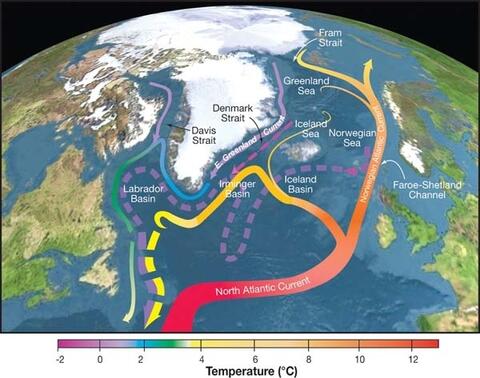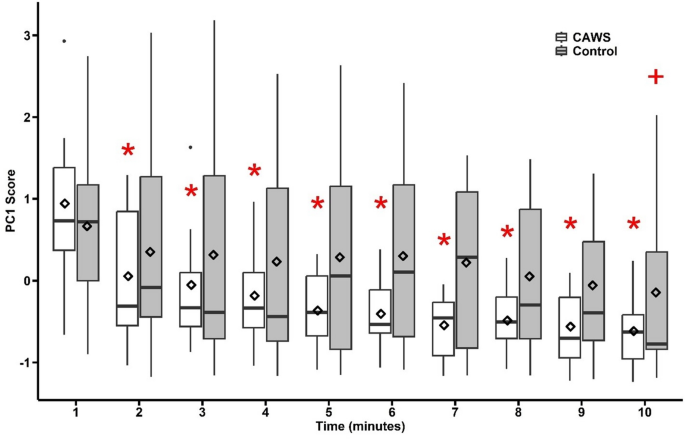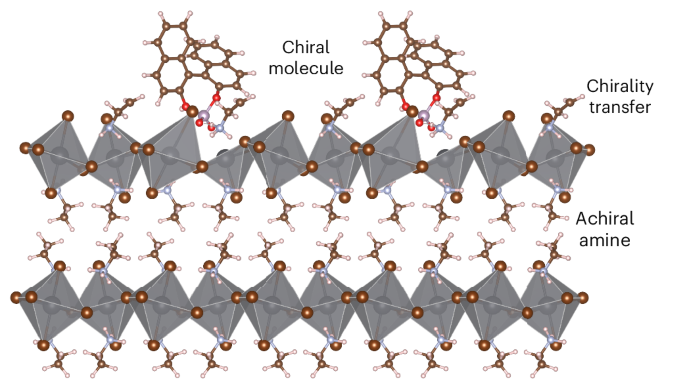2024-10-25 カリフォルニア大学リバーサイド校(UCR)

Map showing how the AMOC carries warm water from the tropics to higher latitudes. (R. Curry/Woods Hole Oceanographic Institution/USGCRP)
<関連情報>
- https://news.ucr.edu/articles/2024/10/25/slowing-ocean-current-could-ease-arctic-warming-little
- https://www.pnas.org/doi/10.1073/pnas.2402322121
大西洋部循環の弱まりが北極の増幅に与える影響 Impacts of Atlantic meridional overturning circulation weakening on Arctic amplification
Yu-Chi Lee, Wei Liu, Alexey V. Fedorov, +1, and Patrick C. Taylor
Proceedings of the National Academy of Sciences Published:September 16, 2024
DOI:https://doi.org/10.1073/pnas.2402322121
Significance
Arctic amplification, the disproportionate warming of the Arctic compared to the global average, has far-reaching effects on weather patterns, ecosystems, and the carbon cycle. Our research quantifies how changes in the Atlantic meridional overturning circulation (AMOC)—a key component of the global climate system—can influence this phenomenon. We demonstrate that a slower AMOC can moderate the Arctic warming by the end of the twenty-first century, primarily through enhanced reflection of solar energy associated with the reduced Arctic sea ice loss. This finding underscores the influential role of ocean currents in global climate regulation and is vital for formulating effective climate responses to greenhouse gas increases.
Abstract
Enhanced warming of the Arctic region relative to the rest of the globe, known as Arctic amplification, is caused by a variety of diverse factors, many of which are influenced by the Atlantic meridional overturning circulation (AMOC). Here, we quantify the role of AMOC changes in Arctic amplification throughout the twenty-first century by comparing two suites of climate model simulations under the same climate change scenario but with two different AMOC states: one with a weakened AMOC and another with a steady AMOC. We find that a weakened AMOC can reduce annual mean Arctic warming by 2 °C by the end of the century. A primary contributor to this reduction in warming is surface albedo feedback, related to a smaller sea ice loss due to AMOC slowdown. Another major contributor is the changes in ocean heat uptake. The weakened AMOC and its associated anomalous ocean heat transport divergence lead to increased ocean heat uptake and surface cooling. These two factors are inextricably linked on seasonal timescales, and their relative importance for Arctic amplification can vary by season. The weakened AMOC can also abate Arctic warming via lapse rate feedback, creating marked cooling from the surface to lower-to-mid troposphere while resulting in relatively weaker cooling in the upper troposphere. Additionally, the weakened AMOC increases the low-level cloud fraction over the North Atlantic warming hole, causing significant cooling there via shortwave (sw) cloud feedback despite the overall effect of sw cloud feedback being a slight warming of the average temperature over the Arctic.



